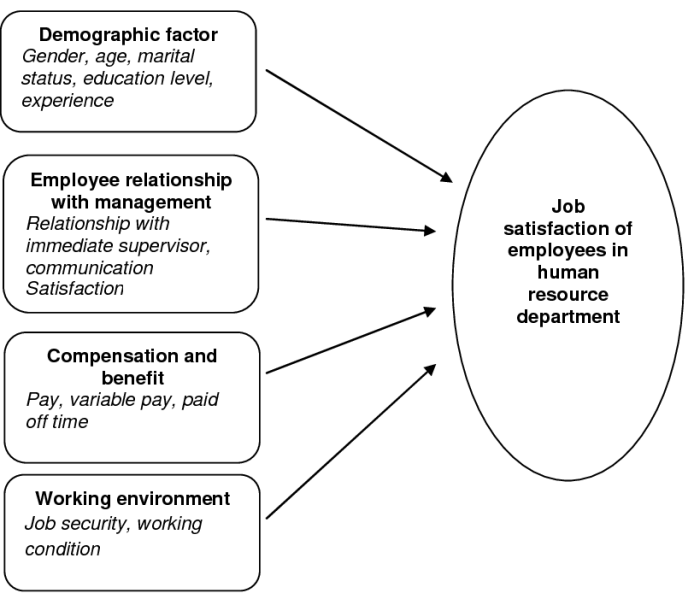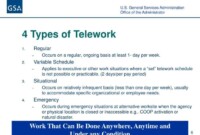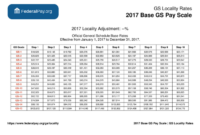GS Pay and Job Satisfaction: Does It Matter? This question sits at the heart of employee motivation and workplace dynamics. While a hefty paycheck might seem like the ultimate motivator, the reality is much more nuanced. The truth is, job satisfaction is a complex equation with many variables, and salary is just one piece of the puzzle.
This article explores the intricate relationship between GS pay and job satisfaction, examining the impact of compensation on employee happiness, productivity, and retention. We’ll delve into the factors beyond salary that contribute to a positive work environment, and explore how companies can create a culture that values both financial and non-financial rewards.
The Importance of Compensation in Job Satisfaction
Compensation, beyond merely providing financial security, plays a pivotal role in shaping an employee’s overall job satisfaction. A fair and competitive salary can significantly impact an individual’s perception of their worth, motivation, and commitment to their work.
Relationship Between Compensation and Job Satisfaction
Research consistently demonstrates a strong correlation between compensation and job satisfaction. When employees feel fairly compensated for their contributions, they tend to experience higher levels of satisfaction with their jobs. This satisfaction stems from a sense of recognition, appreciation, and value placed on their skills and efforts.
Studies Demonstrating the Connection, GS Pay and Job Satisfaction: Does It Matter?
Numerous studies have explored the link between compensation and job satisfaction. For instance, a study published in the Journal of Applied Psychology found that employees who perceived their pay as fair were more likely to report higher levels of job satisfaction and organizational commitment.
Another study, conducted by the Society for Human Resource Management, revealed that employees who received regular salary increases were more likely to feel valued and motivated in their roles.
Yo, let’s talk real quick about GS Pay and how it affects your vibe at work. It’s all about finding that sweet spot where you’re compensated fairly, right? Check out this GS Pay Scale 2024 for Human Resources: A Comprehensive Guide to see what’s up in the HR world.
Knowing your worth is key to feeling good about your job, and that’s what matters, man.
Real-World Scenarios
In real-world scenarios, the impact of salary on job satisfaction is evident. Consider a company that offers competitive salaries and benefits packages. Employees in this company are more likely to be satisfied with their compensation, leading to increased productivity, reduced turnover rates, and a more positive work environment.
On the other hand, a company with stagnant wages and limited benefits might experience low morale, high turnover, and difficulty attracting and retaining top talent.
Factors Beyond GS Pay Influencing Job Satisfaction

While GS pay plays a significant role in job satisfaction, it’s not the sole determinant of employee happiness and motivation. Numerous other factors contribute to a positive work environment, ultimately impacting employee retention and overall organizational success.
Work-Life Balance
Achieving a healthy work-life balance is paramount for employee well-being and satisfaction. Employees need time for personal pursuits, family commitments, and self-care to maintain a positive mental and physical state. Organizations that prioritize work-life balance implement flexible work arrangements, generous vacation policies, and support programs for employees to manage their responsibilities effectively.
Company Culture
A positive and supportive company culture fosters a sense of belonging, collaboration, and shared values. This includes open communication, mutual respect, recognition of achievements, and opportunities for professional development. A strong company culture promotes employee engagement, reduces stress, and creates a more enjoyable work environment.
So, you’re thinking about that sweet, sweet GS Pay and how it might affect your job satisfaction, right? Well, let’s be real, a good paycheck can definitely boost your mood, and knowing how to navigate the GS Pay Scale is key.
Check out this awesome guide Navigating the GS Pay Scale 2024: A Comprehensive Guide for Administrative Assistants to get the inside scoop on what you can expect. Knowing your worth and how to get the best deal is all part of finding that job satisfaction sweet spot, right?
Opportunities for Growth
Employees are more likely to be satisfied when they feel challenged and have opportunities for professional growth. This can include access to training programs, mentorship opportunities, and clear career paths within the organization. Investing in employee development demonstrates a commitment to their long-term success and contributes to their overall job satisfaction.
Recognition and Appreciation
Feeling valued and appreciated is a crucial factor in job satisfaction. Employees want to be acknowledged for their contributions and efforts. This can be achieved through formal recognition programs, public praise, and personalized feedback. Regular recognition reinforces positive behaviors, motivates employees, and creates a culture of appreciation.
The Impact of GS Pay on Employee Retention and Productivity
The GS pay system, a cornerstone of federal employment, plays a significant role in shaping employee retention and productivity. Competitive GS pay levels can significantly influence the desire of employees to stay within the federal workforce, while inadequate compensation can lead to higher turnover rates and diminished performance.
The Relationship Between GS Pay and Employee Retention
Competitive GS pay levels are crucial for retaining valuable employees within the federal government. When employees feel fairly compensated, they are more likely to remain in their positions and contribute to the long-term success of the organization. This can be attributed to the following factors:
- Financial Security:A fair GS pay level provides employees with financial stability, reducing the need to seek higher-paying opportunities elsewhere. This security fosters a sense of loyalty and commitment to the organization.
- Improved Morale:Employees who feel valued for their contributions are more likely to have higher morale. Competitive GS pay demonstrates that the organization recognizes and appreciates their work, boosting their overall satisfaction and motivation.
- Reduced Turnover Costs:High turnover rates can be costly for organizations, as they involve recruitment, training, and onboarding new employees. By offering competitive GS pay, the federal government can minimize these costs and ensure a more stable workforce.
The Correlation Between GS Pay and Employee Productivity
Fair compensation is directly linked to employee productivity levels. When employees feel adequately compensated for their efforts, they are more likely to be engaged, motivated, and productive. This can be attributed to the following:
- Motivation and Effort:When employees believe they are fairly compensated, they are more motivated to put in extra effort and contribute to organizational goals. This increased motivation can lead to higher productivity and improved performance.
- Reduced Absenteeism:Employees who feel valued and fairly compensated are less likely to be absent from work. This improved attendance translates into greater productivity and efficiency within the organization.
- Improved Job Satisfaction:Fair compensation is a key factor in job satisfaction. Employees who feel their work is being recognized and rewarded are more likely to be satisfied with their jobs, leading to higher productivity and commitment to the organization.
The Impact of Inadequate GS Pay on Employee Turnover and Performance
A hypothetical scenario can illustrate the potential consequences of inadequate GS pay on employee turnover and performance. Imagine a federal agency with a high turnover rate due to low GS pay levels.
- Increased Turnover:Employees in this agency may feel undervalued and seek higher-paying opportunities in the private sector or other government agencies. This can lead to a cycle of constant recruitment and training, draining resources and disrupting the agency’s operations.
- Decreased Productivity:The remaining employees may feel demoralized and less motivated to perform at their best. This can result in lower productivity, missed deadlines, and a decline in the quality of work delivered.
- Loss of Expertise:As experienced employees leave for better compensation, the agency loses valuable knowledge and expertise. This can hinder the agency’s ability to function effectively and meet its mission.
The Role of GS Pay in Attracting and Retaining Top Talent
GS pay, a standardized salary system used by the U.S. government, plays a crucial role in attracting and retaining top talent. A competitive GS pay scale can incentivize highly skilled and qualified individuals to apply for government positions, ultimately contributing to a strong and capable workforce.
GS Pay’s Impact on Attracting Top Talent
GS pay serves as a primary factor in attracting qualified candidates. By offering competitive salaries aligned with industry standards, government agencies can compete with private sector employers for the best talent. A strong GS pay scale ensures that government positions are seen as financially viable and attractive to individuals seeking fulfilling careers.
Comparing GS Pay with Other Factors
While GS pay is an important factor, it’s not the sole determinant of job satisfaction. Other factors, such as reputation, career development opportunities, and work-life balance, also play a significant role in attracting and retaining top talent.
Importance of GS Pay Compared to Other Factors
- GS Pay: A competitive GS pay scale ensures that government positions offer financially viable and attractive salaries, making them comparable to private sector jobs.
- Reputation: A strong organizational reputation, built on a history of positive impact and public service, can attract individuals seeking meaningful work and a sense of purpose.
- Career Development Opportunities: Offering opportunities for professional growth, such as training programs, mentorship, and advancement pathways, can enhance employee satisfaction and retention.
- Work-Life Balance: A healthy work-life balance, with flexible work arrangements and supportive policies, is crucial for attracting and retaining employees seeking a fulfilling personal life alongside their careers.
GS Pay Scales Across Organizations
To understand the competitive landscape, it’s essential to compare GS pay scales across different organizations within a specific industry. Here’s a table comparing GS pay scales for entry-level positions in the IT industry:
| Organization | GS Pay Scale (Entry Level) |
|---|---|
| U.S. Department of Defense | GS-5: $42,000
|
| U.S. Department of Homeland Security | GS-5: $40,000
|
| U.S. Department of Energy | GS-5: $41,000
|
Note:These figures are approximate and may vary based on specific job duties, location, and experience.
The Importance of Transparency and Fairness in GS Pay Practices: GS Pay And Job Satisfaction: Does It Matter?
A fair and transparent GS pay system is crucial for fostering a positive and productive work environment. It goes beyond simply providing competitive salaries; it involves establishing clear and equitable compensation practices that are communicated effectively to employees.
Impact of Transparency and Fairness on Employee Morale
Transparency and fairness in GS pay systems have a significant impact on employee morale. When employees feel that their compensation is determined fairly and that the process is transparent, they are more likely to be satisfied with their jobs, motivated to perform well, and loyal to the organization.
Conversely, a lack of transparency or perceived unfairness in pay can lead to decreased morale, reduced productivity, and increased turnover.
Examples of Companies with Fair Compensation Practices
Several companies have successfully implemented fair and transparent compensation practices.
- Google:Google is renowned for its competitive salaries and transparent compensation philosophy. The company publishes salary ranges for different roles, providing employees with a clear understanding of their potential earnings.
- Netflix:Netflix emphasizes a culture of transparency and fairness in compensation. The company has a “no-negotiation” policy for salaries, ensuring that all employees in the same role are paid the same.
- Zappos:Zappos, known for its employee-centric culture, prioritizes fair compensation and benefits. The company provides a comprehensive benefits package and has a strong emphasis on employee well-being.
Consequences of Perceived Unfairness in GS Pay
Perceived unfairness or discrepancies in GS pay can have several negative consequences:
- Decreased Employee Morale:When employees feel that their compensation is not fair, it can lead to feelings of resentment, frustration, and decreased motivation. This can negatively impact their overall job satisfaction and commitment to the organization.
- Reduced Productivity:Unfair pay practices can lead to reduced productivity as employees may feel demotivated and less inclined to put in extra effort.
- Increased Turnover:Employees who feel that their compensation is unfair are more likely to seek employment elsewhere. This can lead to increased turnover costs for the organization.
- Legal Issues:In some cases, perceived unfairness in pay can lead to legal challenges. For example, employees may file lawsuits alleging discrimination based on gender or race.
Last Point
Ultimately, the answer to the question, “Does GS pay matter?” is a resounding yes, but with important caveats. While a competitive salary is essential for attracting and retaining top talent, it’s not the only factor that drives job satisfaction.
Companies that prioritize a holistic approach to employee well-being, offering a mix of financial compensation, meaningful work, opportunities for growth, and a supportive culture, are the ones that will truly thrive in the long run. It’s about creating a workplace where employees feel valued, respected, and motivated to contribute their best.


